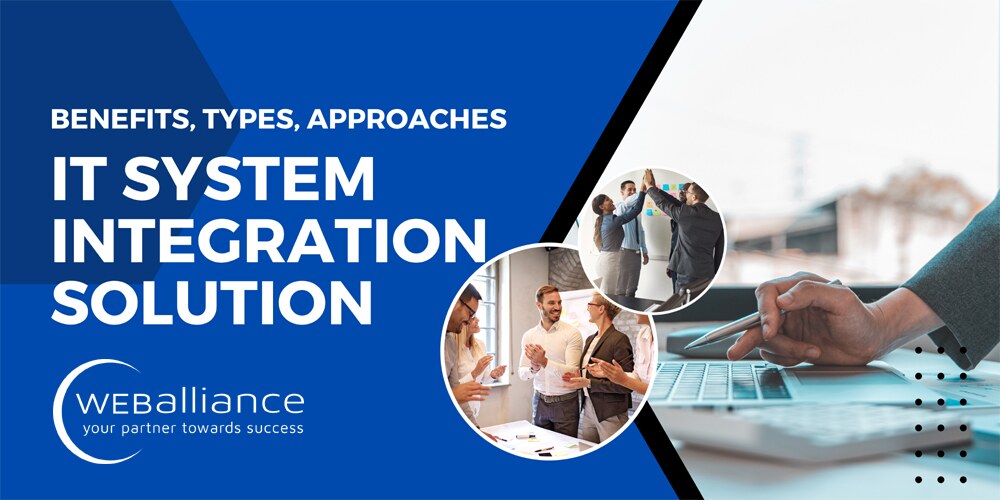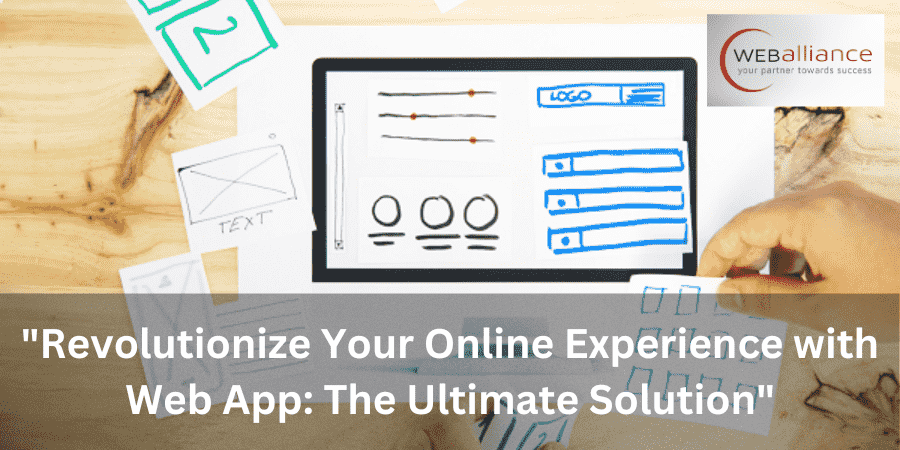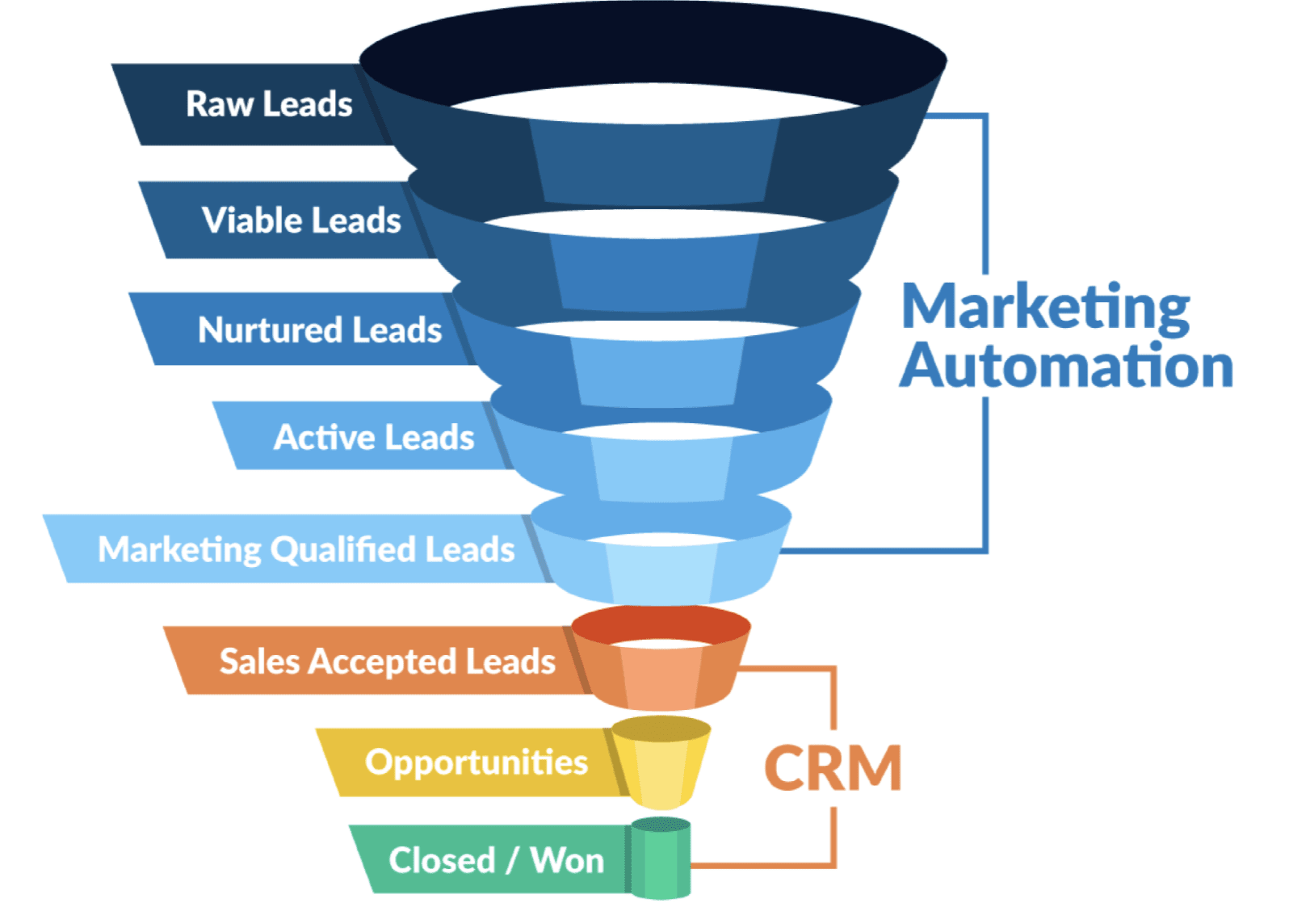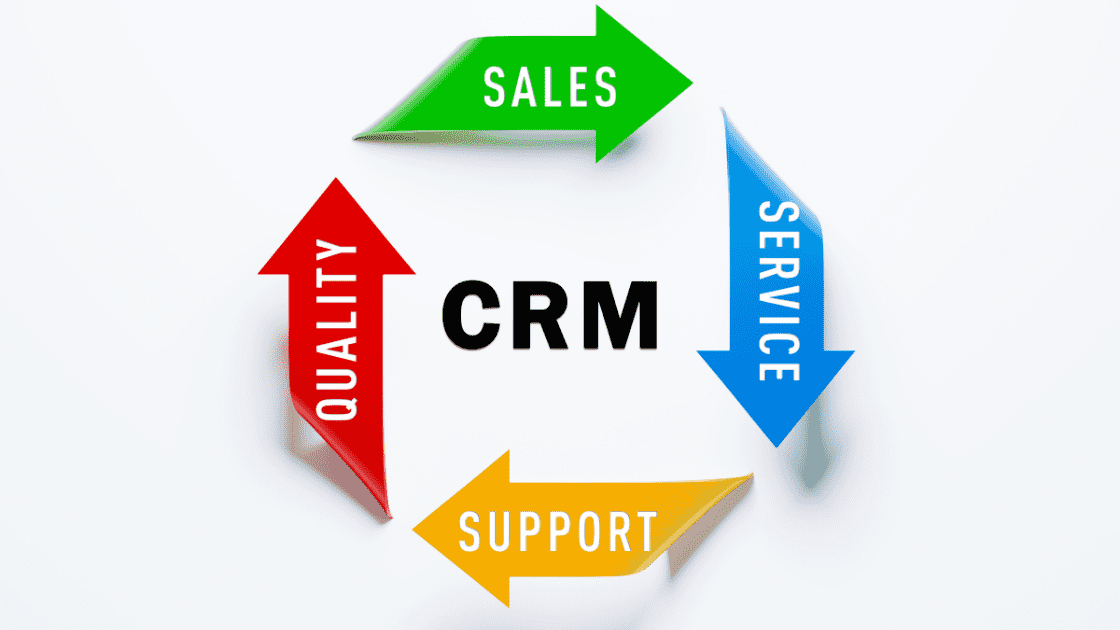IT System Integration Solution: Benefits, Types, Approaches

The efficiency, productivity, delivery, and profitability improvement is the consistent process in growing aspiring businesses irrespective to business niche and size. Using a number of custom back-office software solutions for different tasks has become a common practice but when businesses expand their operation and grow, managing and using different custom software solutions up to their maximum potential becomes complex. Here comes the role of a bespoke CRM software development company with experience and perfection in tailored-to-need IT system integration software development and integration.
What Is An IT System Integration Solution?
For your business enterprise application integration or enterprise system integration is a bespoke software solution to bridging the gaps between different software applications like ERP, CRM, SCM, etc. System integration software connects different sub-systems (components) of different software into a single system. It is typically defined as the process of integrating various IT services, systems, and software to make them work as a single unit. The united infrastructure of software integrated delivers motile benefits to organizations.
Benefits Of Bespoke Enterprise System Integration Software
Also called as IT integration or software integration, system integration software interconnects different departments of an organization like production, management, accounts, marketing, sales, inventory, service support, etc simplifying information access and sharing with enhanced data security. The key benefits of system integration software application are-
- Improved Delivery: Access to consolidated data and real-time information on a unified dashboard empowers employees to improve their delivery. Improved delivery time benefits your organization in multiple ways including perception of clients about your organization.
- Improved Data-Driven Decision-Making: Different team members don’t need to download the required information for the expected quick action. IT system integration application makes data analytics easier and quicker. Data-driven insights help team members to make informed decisions faster.
- Improved Performance: Streamlined and custom-to-need managed processes remove performance silos. The efficiency of the entire workflow and communication in different verticals increases significantly. Easy, anywhere, and anytime access of information supports employees to act appropriately and faster.
- Cost-Saving: The cost of IT system integration application development is less than the costs of replacing the existing software system with an entire new single system. As well, system integration application integration doesn’t impact the ongoing processes.
- Improve Time Management: The business system integration solution helps you improve time management. It allows you to communicate with other businesses while collecting valuable information automatically. Improved and simplified automation of repetitive tasks saves considerable time and manpower.
Different Types of Business Systems Integration Services
The entire business systems integration process can be divided into small steps to make it affordable. Business systems integration services can be divided into four major categories-
- Enterprise Application Integration ((EAI) Software Development: It simplifies and automates data collection and analytics without making drastic changes to ongoing front- and back-office processes. It unites different subsystems of a legacy system in one business software system.
- Electronic Data Integration/Interchange (EDI) Solution: It replaces time-consuming paperwork and automates the processes as well. It allows users to share business documents computer-to-computer. The system-managed approach saves time and effort besides reducing errors.
- Data Integration (DI) Software Solution: It provides a unified view. It helps to use data analytics to get actionable intelligence for quick decision-making. It brings different data sources under one umbrella.
- Third-Party System Integration Solution: It helps businesses to consolidate scaling and monitoring capabilities and functionalities of the existing system supported with ever-expanding 3rd-party applications. For example, it connects an existing application with a payment gateway, Social media marketing platforms, CRM, and others.
- Business-To-Business Integration Solution: It connects systems of two or more organizations to simplify communication, processes, and information workflow. It leads to efficient cooperation and relationships with suppliers, partners, and customers.
Three Architectures For IT System Integration: Which Is Good For You?
There are three common architectures for IT system integration solution development-
- Point-To-Point Model: Under this system integration architecture every existing system is connected with other apps and systems required to share information across and working in tandem. It is a good choice for businesses that run their business operations on a few software modules and do not use complex business analytics.
- Hub-and-Spoke Model: It is an advanced version of Point-to-point model. Under this system integration architecture all the issues of the Point-to-point model are addressed. The connections between subsystems are managed by a centralized hub that acts as a message-governed middleware. It is an ideal choice for businesses involved in e-commerce, payment processing, financial operations, etc.
- Enterprise Service Bus (ESB) Model: It creates an enterprise service bus to act as a user interface layer connecting all the subsystems. It is cloud-compatible also. High scalability is the best feature that makes it priority of businesses dealing in large project implementation.
A single system integration application development approach may not be sufficient to serve all the objectives of businesses leveraging a wide range of technologies. The top system integration software companies use a mixed approach combining all three patterns.
The efficiency, productivity, delivery, and profitability improvement is the consistent process in growing aspiring businesses
Approach to Get the Best IT System Integration Software Development
- To get the best ROI of system integration software deployment, you should be aware of your requirements and the capabilities of the software solution to be developed.
- The system integration solution should be in line with your particular objectives and goals. It is good to make a list of the features you need.
- System integration solution is used by different team members; therefore, knowing their requirements and capabilities is a must while lining up the objectives and goals.
- Assess what benefits you will get with a little investment in hiring a system integration company that you are missing.
- Assess the risks involved. Though the leading system integration software companies ensure for risk free deployment of custom system integration solution; still, you must have a formal data security strategy.
- Develop a management plan defining who will be responsible for which role. Assess the training needs to utilize the commissioned system integration solution up to its full potential.
In addition, you also need to have answers of the following questions-
- Are the applications and systems to be integrated on-premise or in the cloud?
- Are the applications and systems to be integrated internal or external?
- Are there some technical restrictions like firewalls to impact the performance of integrated solution?
- If applications and systems to be integrated are internal, what is the purpose of their integration?
- If applications and systems to be integrated are external, how will you execute business strategy across your value chain?
- Do you use legacy technologies inflexible to system integration solutions?
How Web Alliance Can Help You by Developing IT System Integration Solution
IT infrastructure in almost every industry including banking, logistics, financial institutions, telecommunications, retail, energy, government institutions, healthcare, etc has become a disjointed ecosystem because of constantly accommodating evolving protocols, legacy infrastructure, and modern technologies, database-building requirements, analytics requirements, etc. With a relentless focus on delivering the maximum business value and leveraging next-gen technologies, we customize system integration architectures to deliver bespoke system integration solutions facilitating you for end-to-end business transformation. Our highly qualified and experienced software developers revolutionize your digital landscape to convert growth-oriented strategies into an actionable roadmap. Over the years, we have helped a number of businesses to integrate systems and applications as well as to eliminate issues in IT agility. Trust Web Alliance for system integration solution development and deployment.





